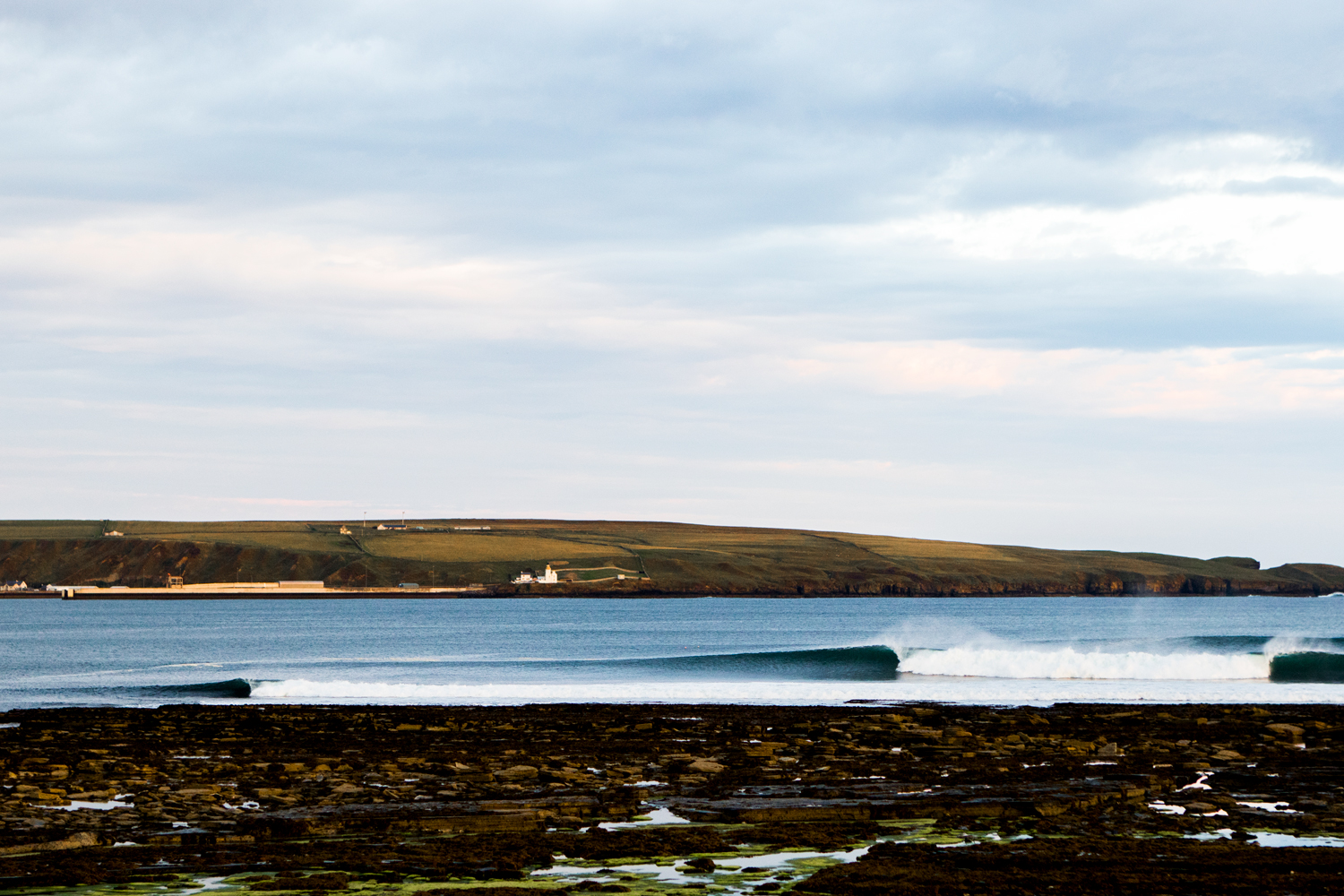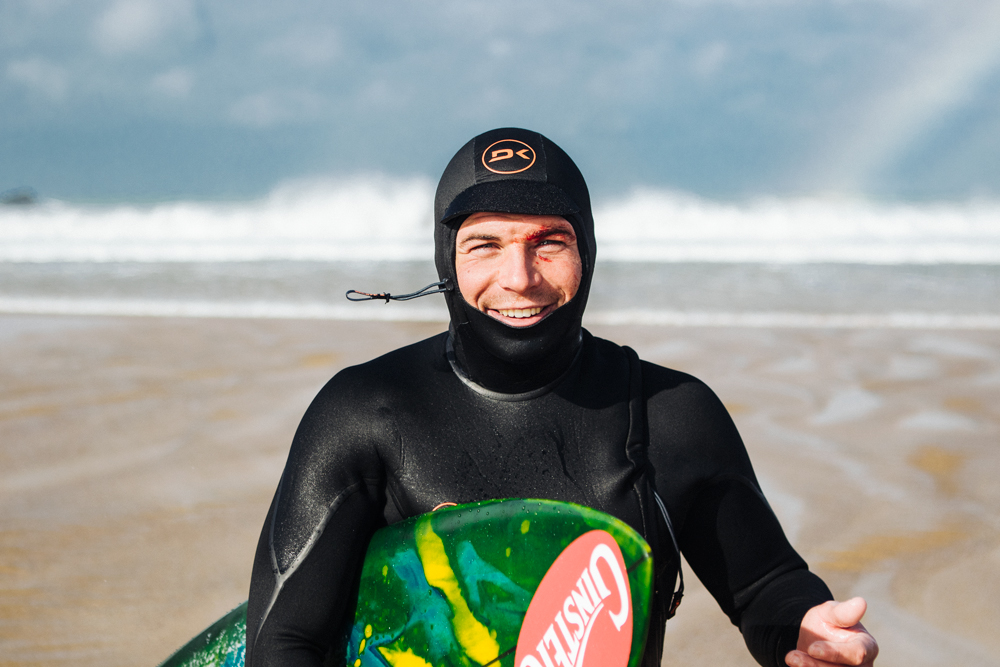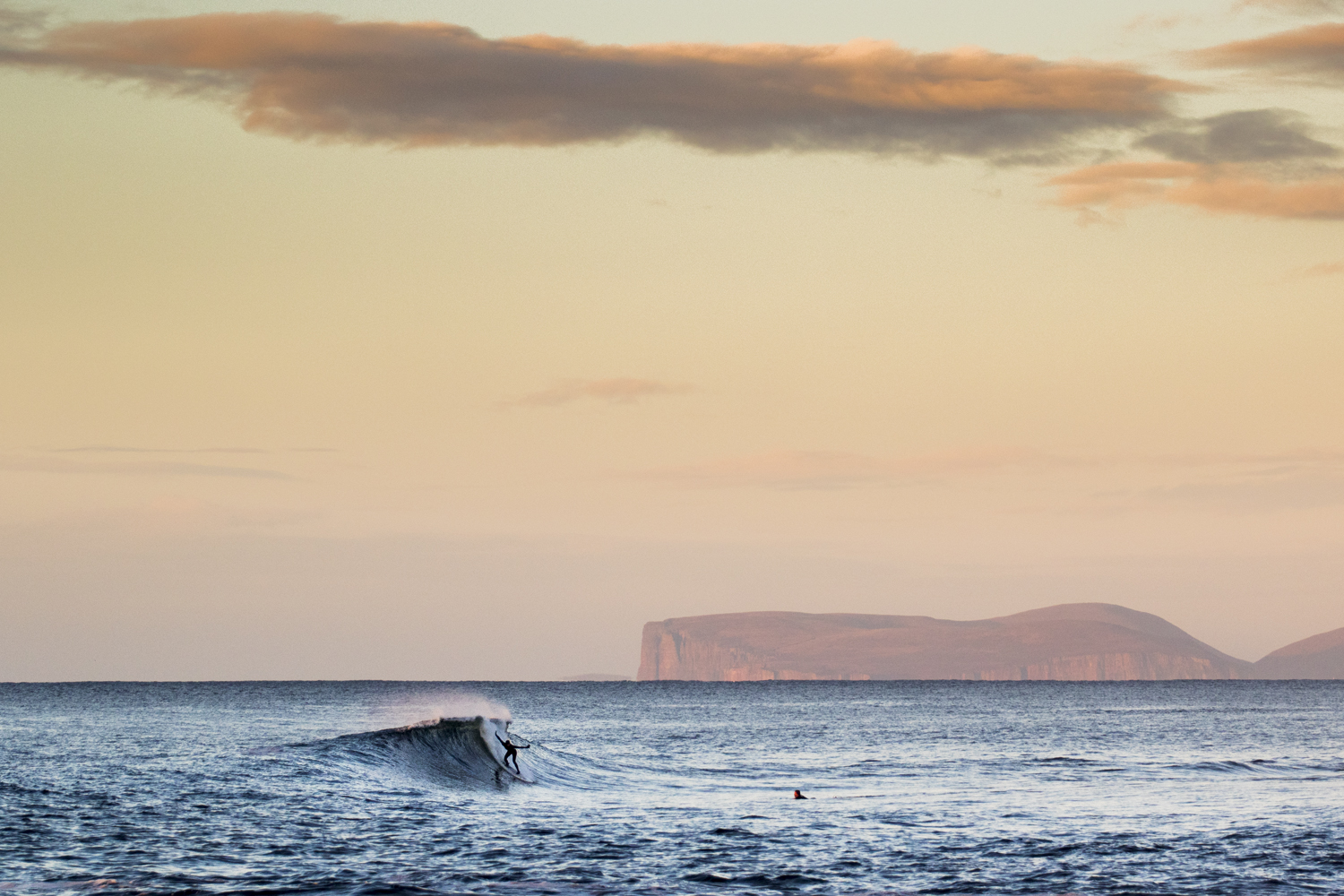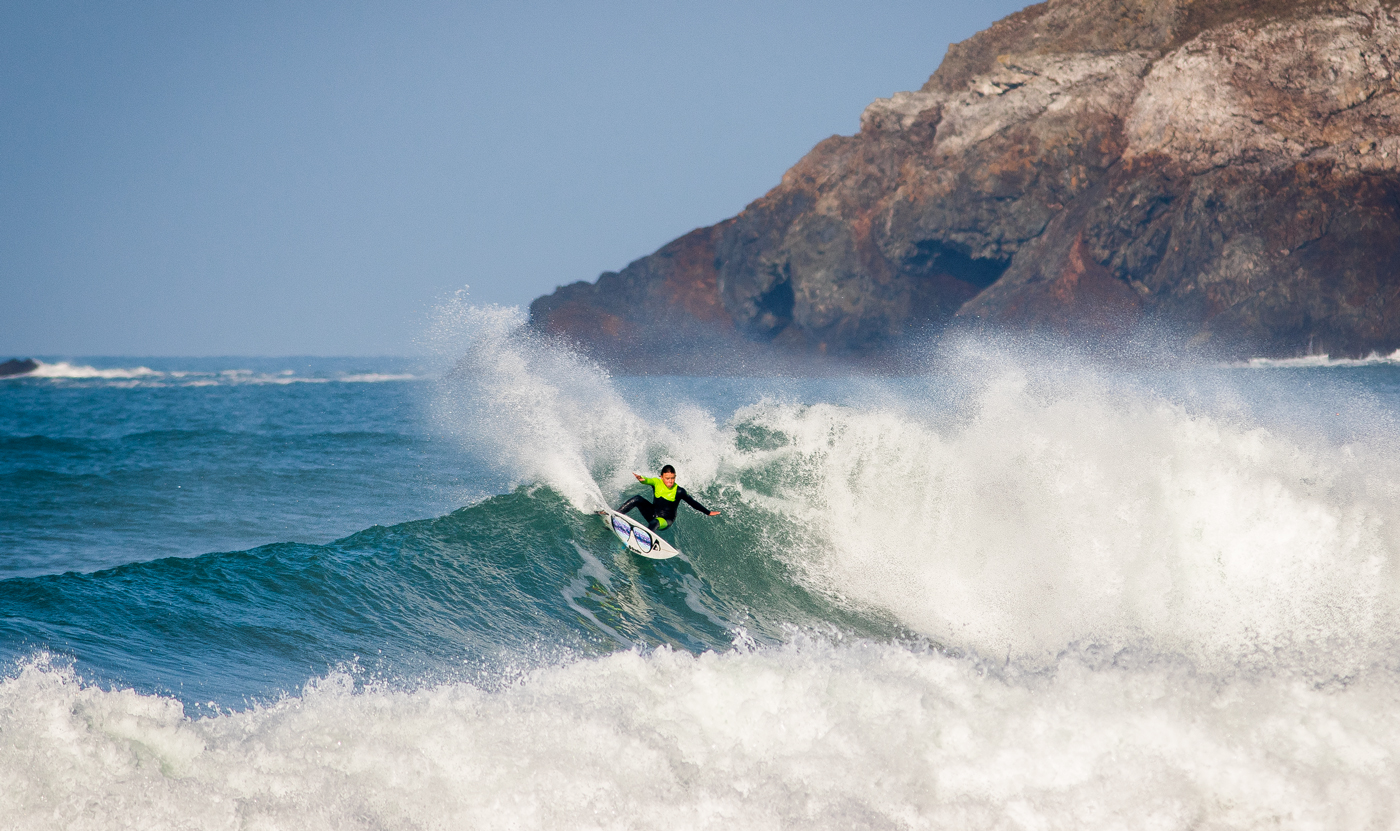Back in 2016, we sat down with four British pro surfers from four different generations to discuss the state of the country’s competitive scene.
In that conversion, Nigel Semmens, one of Britain’s first-ever and still most successful contest surfers, lamented the lack of a pathway for those aspiring to become professional surfers, identifying it as one of the key things preventing our nation from reaching its competitive surfing potential.
Of course, to have a pathway, you need good local infrastructure, a governing body, a healthy domestic competitive circuit, prize purses, coaching and funds for foreign travel. In short, you need serious financial backing from somewhere.
It was already clear back then that most brands were much keener to invest in free surfers with big social followings than those grinding on the bottom rungs of the competitive circuit. If we wanted success, the group concluded, we had to follow the likes of France, Australia and many more with a publicly funded development programme.
So, when we heard two years later in 2018 that surfing would finally be joining a list of 35 other sports to receive funding from UK Sport it felt like a big moment. The initial investment was a relatively small £192,500 but it was followed up last year by a much more substantial £1.35 million.

This weekend will see the British Nationals run at Thurso, with 8 representatives (four men, four women) from each of the country’s four nations vying for a place in the British Team heading to the Worlds this May. Photo @lugarts
Of course, we were very keen to know how this money would be spent, so late last year we hit up British Surfing, the organisation responsible for administering the funds, (which we’d usually abbreviate to its initials from here on out, but will avoid in this instance, for obvious reasons) to ask what they had planned. For a few months, we heard nothing, while the organisation worked hard behind the scenes to get its ducks in a row. Then last month, independent chair Dave Cove reached out and said he was ready to share their plans. Here’s what he told us:
WL: First, can you give us a little bit of background on British Surfing? What’s the role of the organisation and who’s involved?
DC: British Surfing was pretty much established and created because surfing became an Olympic sport. The remit we have is linked to UK Sport and all the funding we get at the moment is through them. It started as a collaboration agreement between the four home nations; England, Scotland, Wales and the Channel Islands. So, while British Surfing is a body that sits completely separate to them, they’re integral to what we do. On the board, there’s a representative from each home nation, Arlene Maltman from the Channel Islands, Piers Martin from England, Huw John from Wales and William Watson from Scotland.
I’m the Independent Chair, so I’m not aligned or associated with any of the home nations, which was one of the conditions. Then there’s Kelly Barnes, the Senior Independent Director, who also has no history or links to any of them. Although myself and Kelly both surf, neither of us are competitive surfers, but we bring skills from other levels, in terms of our work in elite sport and on boards. Specifically, my background is sports development, which I’ve been doing for 30 odd years. I think it’s that combination that gives it some strength, rather than everyone being from the same background and having the same views. We’re all volunteers, nobody gets paid and we all have day jobs which this has to fit in with.

At just 13 years old, Lukas Skinner is already hotly tipped as Britain’s most exciting up and coming home grown talent with serious acumen on the face, above the lip and in the tube, as demonstrated in this image, captured this winter in Cornwall. Photo: @lugarts
WL: Back in late 2018, you received a small injection of funding from the UK Sport Aspiration Fund. Has that money been spent?
DV: Some has and some hasn’t. The way UK Sport works is all their funding is done on four years cycles, linked to the Olympics. The aspiration fund was linked to the Tokyo Games, which has obviously been delayed. Some of that money was allocated – and is still allocated – to getting a British team to the World Championships in El Salvador. We also had an ambassador programme which was part of the scheme and we’ve supported several local initiatives, using surfing to support mental health, deprivation and social cohesion. Most of those projects haven’t really happened yet because of Covid, but we’ve put some funding aside for them. Then some of the money was used as a pump primer for the successful Paris submission.
WL: So if you’re on the British team going to the Worlds how much of your travel, accommodation, food etc will be covered by that fund and how much will still require input from parents, sponsors and personal finances?
DC: Going forward, most of it should be covered. I can’t give a guarantee and say every penny will be, but certainly, the bulk of the costs will be covered as part of this programme.
WL: How would describe the set of objectives outlined by UK Sport for the second round of funding?
DC: The best way to describe it is with the remit of UK Sport as a whole. Their role is to provide “strategic investment to enable Great Britain’s Olympic and Paralympic sports and athletes to achieve their full medal-winning potential.” And that’s what the programme is aimed at; the Olympics and getting a British surfer onto a podium. It’s an investment from UK Sport, so we haven’t got one of those lovely big cheques with £1.35 million written on it. We work with UK Sport on a process and that funding is drip-fed into us.


Luke Dillon is Britain’s top internationally ranked surfer with a competitive drive and tenacity reminiscent of our country’s sole CT qualifier Russ Winter. Photo @lugarts
As a bit of background, UK Sport was created in 1997, one year after the Olympic Games in Atlanta, where we won just 15 medals and came in 36th in the medal table, ahead of Belarus and behind Ethiopia. The idea behind the organisation was to try and improve our standing.
Fast forward to Rio 2016, we won 27 golds, 67 medals in total and came second in the medal table, ahead of China and behind the USA. The thing we’ve got to take from that is that UK Sport knows how to win medals. And we know about surfing, so if we combine the two, we’ve got a chance at getting a British surfer a medal.
The way UK Sport have done that is that they have a roadmap, they have a system, and we have to fit into that system. We don’t have carte blanche to do whatever we want. There are three levels to their programme and funding is allocated based on how many athletes you have in each level. We’re at the entry-level, which is ‘progression’. Then there’s ‘academy’ and that’s when you have an athlete who has a line of sight to a podium. So, they might not be top 10 in the world at the moment, but in the next four years, they’re expected to be pretty close. Then you have ‘podium level’ and that’s where you’ve got world-class athletes who are expected to get a medal. Part of our aim is to move up that process.
However, it’s not about making our good surfers slightly better, it’s all got to be geared towards trying to get our athletes onto the podium because that’s the remit we’ve got with UK Sport. Now in some ways, that’s really exciting, but we’ve also got to communicate that to surfers, parents and coaches and make sure that expectations are realistic. Because investing significant public funds in someone who is unlikely to achieve the outcome isn’t something that UK Sport is going to sign off on.
It doesn’t discount anyone who’s in the top 10 in Britain at the moment, but we’ve got to be able to demonstrate to everyone that this money is going to be invested wisely because if it’s spent on X, it can’t be spent on Y.
WL: Coming back to your point about using existing systems that UK Sport have found success within other sports, I can definitely see potential pitfalls there because of the nature of surfing.
For example, presumably they’ll say: let’s use the consistency of a wave pool to mirror training regimes used in gymnastics for example, because to them a controlled environment, rather than just sending a load of surfers to the beach, will seem much more sensible. While that makes sense on paper, the fact that Teahupoo is confirmed as the venue for the Paris Games means the wave pools we’ve got access to aren’t actually particularly good training for the type of waves they’ll be competing in.
DC: That’s a situation where they’d provide the blueprint and we’d put our knowledge onto that blueprint. Because they don’t expect to know about surfing and we shouldn’t expect to know, at this point, about winning gold medals. They don’t say: “you should use wave pools,” what they say is “you come up with a plan that works.” The bit that’s really important is how do you know it works. One of my favourite quotes is by Abraham Lincoln, he said, “If you give me six hours to chop down a tree I’ll spend the first four hours sharpening the axe.” And that’s where we’re at, the bit we have to do first is understand what it is that makes a potential Olympic medalist.

When it comes to training for heavy waves, the north coast of Scotland is one of the few places in Britain that provides the goods. Here, 6X British Champ Lucy Campbell hones her weightless late drop at Brimms. Photo: @lugarts
This is something other sports have already been through. Rowing know exactly the size the rower has to be; they know the height, the arm span. They know if someone has a good chance of being an Olympic medalist, based on the metrics. This is where we can learn, because being part of the world-class programme links us into them. The bit we have to do is, as you say, make it nuanced for surfing. We don’t know the metrics yet around what it might take to be an Olympic surfer. And it probably isn’t the same as rowing, it’s not going to be about height and arm span, but there will be metrics and we’ve got to put a development programme and a pathway linked to that. The blueprint from UK Sport is around data capture and data analysis as well as sports science, sports medicine, strength conditioning and linking into other sports. there’s lots of support. For example, we can link into the English Institute of Sport, who support a lot of Olympic sports on understanding how you capture that data. Then it might be that we can learn stuff from gymnastics because their training might be able to help surfers become more supple and do better moves. Or it might be Park and Pipe in terms of their development processes. The point is, it links us into a better way of working and a different way of thinking.
WL: And will you be looking to other countries?
DC: Where we can we will. Obviously the key thing for us figuring out what works. Some of that’s trial and error, some of that’s learning from other sports, some of that’s learning from other countries. But obviously, you’ve got to be careful because they’re not going to give us all their secrets, in the same way as if we start getting successful we’re not going to start sharing our secrets with other people.
WL: So what does the first step of the process look like?
DC: Part of our submission was a programme of work for the next four years, which has now been agreed. We’re looking to recruit four new posts, the first is a ‘Pathway Lead’, the second is a ‘Talent and Hub Lead’. As you mentioned earlier, wave pools could be part of the hub framework, but so could Newquay, so could Thurso, so could a training camp in Portugal. The third is ‘National Teams Lead’, which manages the national teams. And the fourth is a ‘Coach Development Lead’, because one of the things that we absolutely see as part of this is developing a cohort of high-level coaches. That’s exciting because some of the current athletes might think if I’m going to move into coaching this could be absolutely the right time to do that. Because this isn’t just a four-year programme, we want this to go on.
WL: And after you’ve appointed those people, what’s the next stage of the four-year programme that you’ve laid out to UK Sport?
DC: We’ve got to get them in and then they’ve got to do some of the hard graft around data capture, so we’ve got to start trying to find out and understand what it is that makes an Olympic podium surfer. There will be a group brought together to do that research that these posts will lead. That will involve looking at other countries, looking at other sports and going back over previous world championships, looking at what the best surfers are doing on the wave, doing some data crunching and figuring out what it is about them that makes them the best in the world.

The ability to throw buckets on even the softest sections is a prerequisite to competitive surf success. Here, Bude’s Stan Norman unleashes on a Cornish shoulder. Photo: @lugarts
WL: One of our major disadvantages against a country like Brazil for example, is the sheer number of people there who have access to high quality, very consistent, very varied waves. And the fact that due to water temps and daylight hours, you can start surfing at a very young age and surf all year round. How are we going to try and redress that balance using a data-led approach?
DC: Probably the closest sport to align ourselves to there is Park and Pipe Snowboarding. In years gone by, most British skiers and snowboarders presumably had parents who took them on ski holidays or they lived in Scotland, but actually, now that’s not the case, and they’re competing against and beating Alpine nations. They’ve taken what you’d probably say was an inferior training environment and managed to succeed in spite of that against nations that have fantastic environments in which to learn and develop. We’ll definitely look and see how they did that and what lessons we take into surfing.
***
Reflecting on our conversation, it struck me that it’s always been a core part of surfing’s mythology that beyond obvious stuff like starting young and living near good waves, it’s very hard to identify the exact mental and physical qualities that lead to surfing success. However, it’s also true that many of the top young surfers in the world right now are the children of current and former pros, which does suggest that, with a little help from the nature side, there is a programme of nurture that creates world-class surfing talent.
Perhaps, through their data-led approach, UK Sport and British Surfing will be able to figure out the exact components of that programme, replicate it in an official capacity, find the kids with the most natural talent, enrol them in it and successfully mould a few into the competitive powerhouses of tomorrow. We certainly wish them the best of luck.
Cover photo: @lugarts

